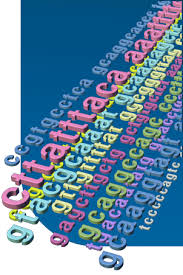Whole Exome Sequencing in Pediatric Neurology Practice
Time to revisit your pediatric neurologist!
I have used this increasingly in my practice for autism, ataxia developmental delays and other undiagnosed disorders.
It can make a therapeutic difference. - JR Houston, TX
Clinical whole exome sequencing in child neurology practice.
Abstract
OBJECTIVE:
Whole exome sequencing (WES) represents a significant breakthrough in clinical genetics as a powerful tool for etiological discovery in neurodevelopmental disorders. To better characterize the genetic landscape of neurodevelopmental disorders, we analyzed patients in our pediatric neurogenetics clinic who underwent WES.
METHODS:
We performed a retrospective cohort study on 78 patients with various neurodevelopmental disabilities and unrevealing workup prior to WES. We characterized their molecular diagnoses, clinical features, and whether their previous treatment plan changed due to WES results.
RESULTS:
The overall presumptive diagnostic rate for our cohort was 41% (n = 32 of 78 patients). Nineteen patients had a single autosomal dominant (AD) disorder, 11 had a single autosomal recessive (AR) disorder, 1 had an X-linked dominant disorder, and 1 had both an AD and an AR disorder. The 32 patients with pathogenic or likely pathogenic variants exhibited various neurobehavioral and neuroimaging abnormalities, including intellectual disability/developmental delay (n = 28), cerebral palsy-like encephalopathy (n = 11), autism spectrum disorder (n = 5), delayed/hypomyelination (n = 7), and cerebellar abnormalities (n = 9). The results of WES affected management for all patients with a presumptive diagnosis, triggering reproductive planning (n = 27), disease monitoring initiation (n = 4), investigation of systemic involvement of the disorder(s) (n = 6), alteration of presumed disease inheritance pattern (n = 7), changing of prognosis (n = 10), medication discontinuation (n = 5) or initiation (n = 2), and clinical trial education (n = 3).
INTERPRETATION:
The high diagnostic yield of WES supports its use in pediatric neurology practices. It may also lead to earlier diagnosis, impacting medical management, prognostication, and family planning. WES therefore serves as a critical tool for the child neurologist. Ann Neurol 2014;76:473-483.
No comments:
Post a Comment